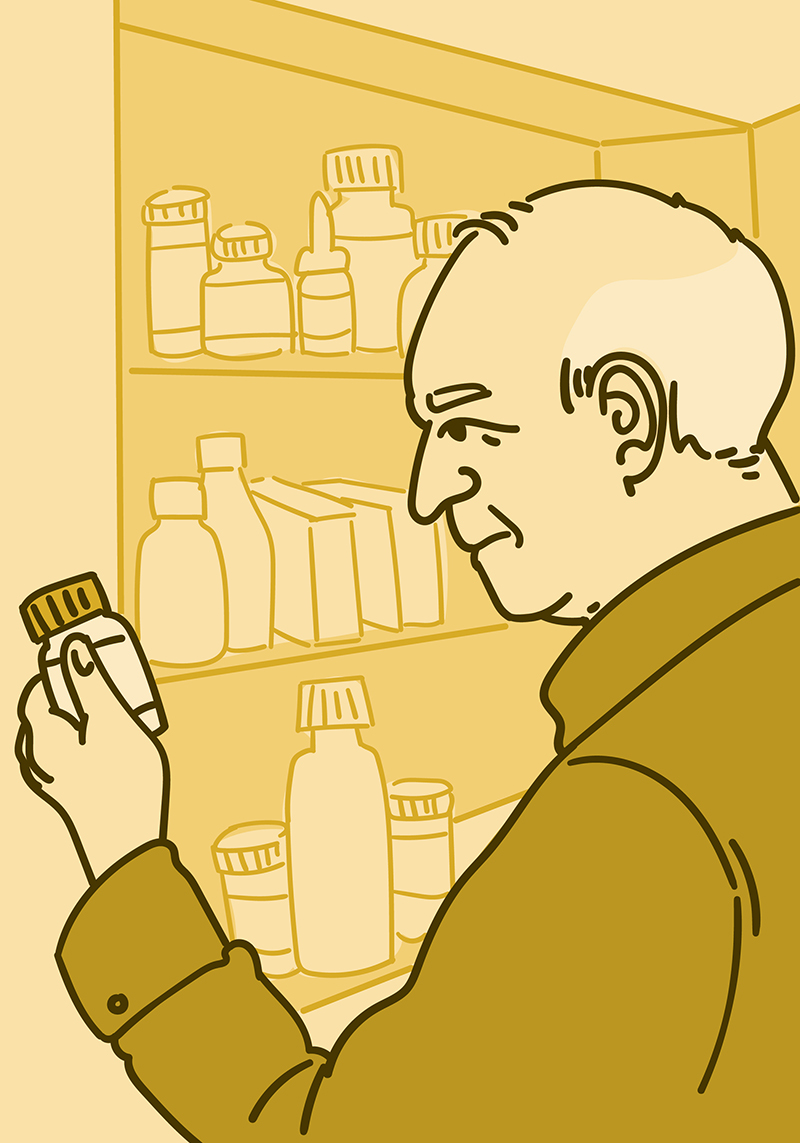Probing Aspirin’s Benefits
Exploring its Role in Prevention

You’ve probably taken aspirin for pain or a fever. But some people take a low dose of aspirin every day. It can reduce the risk of Related to the heart and the vessels that circulate blood through the body. cardiovascular events like heart attacks and strokes. Now, scientists are learning that aspirin’s effects differ based on a person’s age and overall health.
Aspirin helps prevent heart attacks and strokes by keeping platelets from clumping. Platelets are tiny pieces of cells that help slow or stop bleeding by forming blood clots. But preventing blood clots from forming can make bleeding more likely. That means the health benefits of daily aspirin don’t always outweigh the risks.
Studies have shown that a daily low-dose aspirin doesn’t benefit everyone. For example, one study looked at older adults who took aspirin regularly for five years. It found that older adults taking aspirin did not live any longer without a disability than those who did not take it. And, taking a daily aspirin led to more bleeding episodes.
Recently, experts stopped recommending low-dose aspirin for preventing cardiovascular problems in adults over 60. For adults aged 40 to 59, they recommend low-dose aspirin be based on a person’s heart disease risk.
“If you don’t have a condition that puts you at risk from clotting, then there’s really no rationale for inhibiting platelets with low-dose aspirin,” says Dr. Sean Patrick Heffron, a preventive cardiologist at NYU Langone Health. “There are some people for whom a reduction in clotting can really be a problem. For example, older people who are prone to falls.”
But some people are at higher risk for getting a clot. These include those who have a heart stent or have had a heart attack in the past.
Excess weight raises the risk for heart problems. But it turns out low-dose aspirin doesn’t work well for prevention as your weight goes up.
“The use of low-dose/baby aspirin in someone who hasn’t had a heart attack may be beneficial, but only in those with a relatively low body weight,” Heffron says. “Those who are of heavier body weight don’t show that benefit.”
Heffron’s team has been trying to understand why that is. Experts thought that people who carry extra weight might need more aspirin to prevent clots. But Heffron’s team showed that’s not the case. Aspirin’s effects on platelets were about the same regardless of a person’s weight.
The team is now testing another use for aspirin: lowering inflammation. Inflammation is your body’s natural response to injury or infection. But chronic inflammation can lead to health problems.
“Obesity leads to long-term inflammation that doesn’t resolve,” Heffron says. “That may keep a person with a heavier weight at elevated risk for a heart attack or stroke.”
The team is looking at whether aspirin’s ability to lower inflammation varies with a person’s weight. Meanwhile, other research teams are exploring aspirin’s potential to reduce the risk of certain cancers, preterm birth, and more.
“Aspirin deserves a lot more study,” Heffron says. “While aspirin’s use for cardiovascular disease may have fallen off in recent years, the potential for its use in other areas may be increasing. There’s still a lot to learn for sure.”
Be sure to talk with your doctor before taking aspirin regularly.
NIH Office of Communications and Public Liaison
Health and Science Publications Branch
Building 31, Room 5B52
Bethesda, MD 20892-2094
Contact Us:
nihnewsinhealth@od.nih.gov
Phone: 301-451-8224
Share Our Materials: Reprint our articles and illustrations in your own publication. Our material is not copyrighted. Please acknowledge NIH News in Health as the source and send us a copy.
For more consumer health news and information, visit health.nih.gov.
For wellness toolkits, visit www.nih.gov/wellnesstoolkits.




